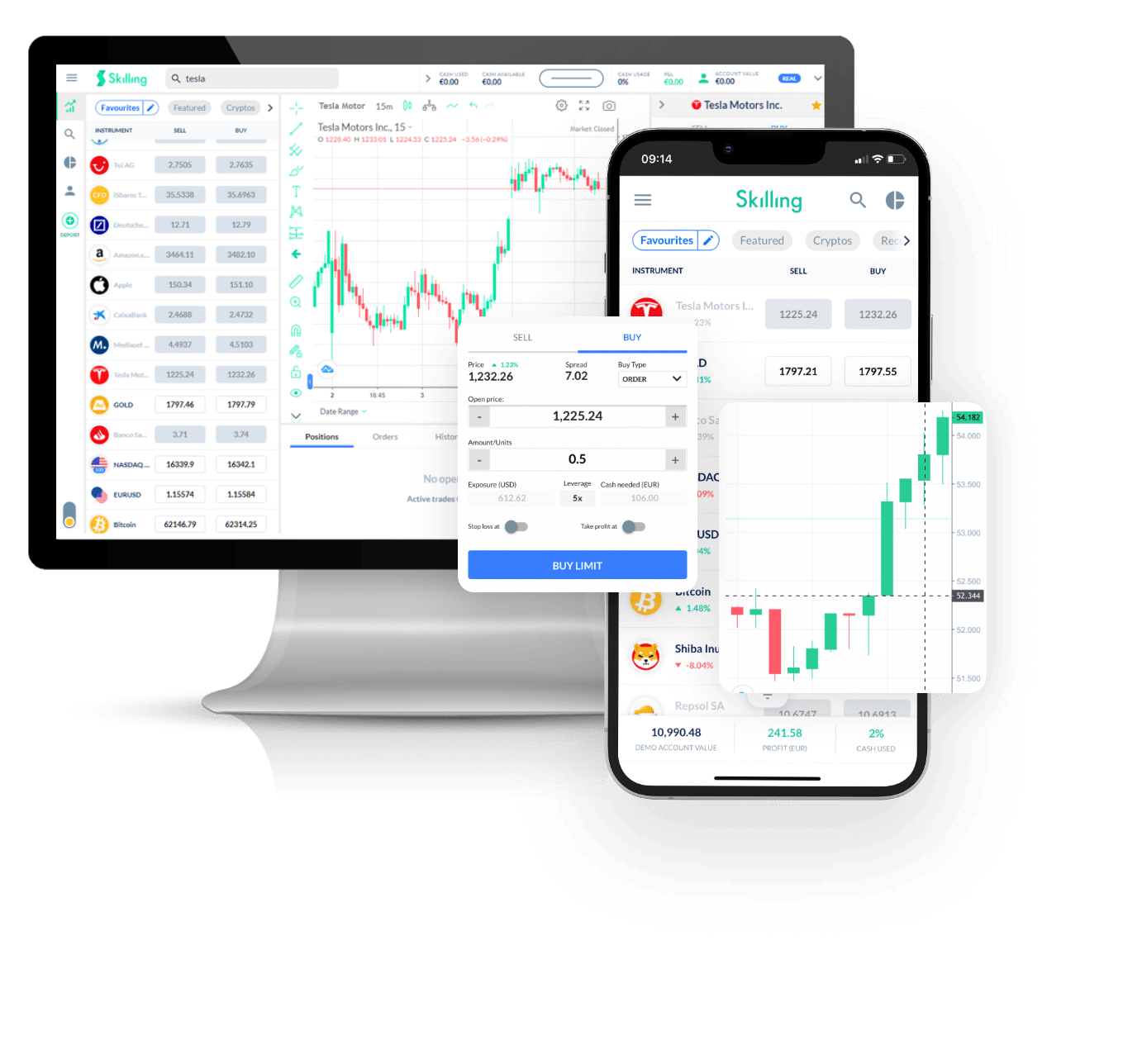Loading...
Novo Nordisk Stocks
[[ data.name ]]
[[ data.ticker ]]
[[ data.price ]] [[ data.change ]] ([[ data.changePercent ]]%)
Low: [[ data.low ]]
High: [[ data.high ]]
Company Profile
Stock Performance Drivers
Trader Insights
Company Profile
Stock Performance Drivers
Trader Insights
A Nordic Powerhouse in Global Healthcare
Founded in 1923, Novo Nordisk is a large Danish multinational pharmaceutical company specializing in treatments for diabetes, obesity, and rare endocrine disorders. It is one of Europe’s most valuable publicly listed firms, with a presence in more than 80 countries.
The company’s shares, traded as NOVO-B on Nasdaq Copenhagen, are widely followed by both institutional and retail traders. With strong fundamentals and large trading volumes, Novo Nordisk is often seen as a benchmark in the healthcare sector.
Core Business Areas
Novo Nordisk focuses on:
- Diabetes care (e.g. NovoRapid, Levemir)
- Obesity treatments (notably Ozempic and Wegovy)
- Rare diseases such as haemophilia and growth disorders
It is also investing in cutting-edge research, including RNA technology and cell-based therapies. Its GLP-1 class of drugs continues to generate global headlines due to widespread demand in both diabetes and (over)weight management.
What Influences the Novo Nordisk Stock?
Multiple factors drive fluctuations in the Novo Nordisk stock price:
What Traders Monitor
Traders following Novo Nordisk often look at:
- Liquidity and volume – strong daily turnover and index inclusion (OMXC25, Euro Stoxx 50)
- Volatility catalysts – trial news, M&A, product launches
- Technical levels – support/resistance, MA, RSI
- Macro themes – healthcare rotation, inflation, policy reform
While some use chart-based strategies, most combine technicals with event tracking and risk controls.
Summary
Novo Nordisk is more than a pharma success story. Its position in the global healthcare sector, strong product pipeline, and market visibility make it a key instrument for traders to observe. As interest in obesity and metabolic treatments grows, the stock remains firmly in focus.
| Swap long | [[ data.swapLong ]] points |
|---|---|
| Swap short | [[ data.swapShort ]] points |
| Spread min | [[ data.stats.minSpread ]] |
| Spread avg | [[ data.stats.avgSpread ]] |
| Min contract size | [[ data.minVolume ]] |
| Min step size | [[ data.stepVolume ]] |
| Commission and Swap | Commission and Swap |
| Leverage | Leverage |
| Trading Hours | Trading Hours |
* The spreads provided are a reflection of the time-weighted average. Though Skilling attempts to provide competitive spreads during all trading hours, clients should note that these may vary and are susceptible to underlying market conditions. The above is provided for indicative purposes only. Clients are advised to check important news announcements on our Economic Calendar, which may result in the widening of spreads, amongst other instances.
The above spreads are applicable under normal trading conditions. Skilling has the right to amend the above spreads according to market conditions as per the 'Terms and Conditions'.

Trade [[data.name]] with Skilling
All Hassle-free, with flexible trade sizes and with zero commissions!*
- Trade 24/5
- Minimum margin requirements
- No commission, only spread
- Fractional shares available
- Easy to use platform
*Other fees may apply.
FAQs
Events that affect Novo Nordisk's share prices?
+ -
As of May 2025, Novo Nordisk's share price is influenced by several key factors:
- Product Performance: Sales figures for flagship drugs like Ozempic and Wegovy significantly impact investor sentiment. Recent competition from Eli Lilly's Zepbound has affected market share, leading to a 50% drop in share price and the ousting of CEO Lars Fruergaard Jørgensen.
- Regulatory Developments: Changes in healthcare policies, especially in the U.S., including drug pricing reforms, can affect profitability and stock performance.
- Clinical Trial Results: Outcomes from trials, such as those for the experimental weight-loss pill Amycretin, can lead to stock volatility based on anticipated future revenues.
- Macroeconomic Factors: Currency fluctuations (notably USD/EUR vs. DKK) and global economic conditions can influence stock valuations.
Trader should monitor these developments closely, as they can lead to significant shifts in Novo Nordisk's stock price.
Does Novo Nordisk pay dividends?
+ -
Yes, Novo Nordisk continues to pay dividends to its shareholders. For the 2024 financial year, the company paid a total dividend of DKK 11.40 per share, comprising an interim dividend of DKK 3.50 in August 2024 and a final dividend of DKK 7.90 in March 2025.
This reflects a 21% increase compared to the previous year, underscoring the company's commitment to delivering shareholder value amid robust financial performance.
Who are the major shareholders of Novo Nordisk?
+ -
Novo Nordisk's major shareholder is Novo Holdings A/S, a Danish public limited liability company wholly owned by the Novo Nordisk Foundation. Novo Holdings holds approximately 28% of the share capital and controls around 77% of the voting rights through its ownership of all A shares.
This structure allows the Foundation to maintain long-term strategic control over Novo Nordisk while supporting scientific and humanitarian initiatives globally.
Why Trade [[data.name]]
Make the most of price fluctuations - no matter what direction the price swings and without capital restrictions that come with buying the underlying asset.
CFDs
Equities
Capitalise on rising prices (go long)
Capitalise on falling prices (go short)
Trade with leverage
Hold larger positions than the cash you have at your disposal
Trade on volatility
No need to own the asset
No commissions
Just low spreads
Manage risk with in-platform tools
Ability to set take profit and stop loss levels

